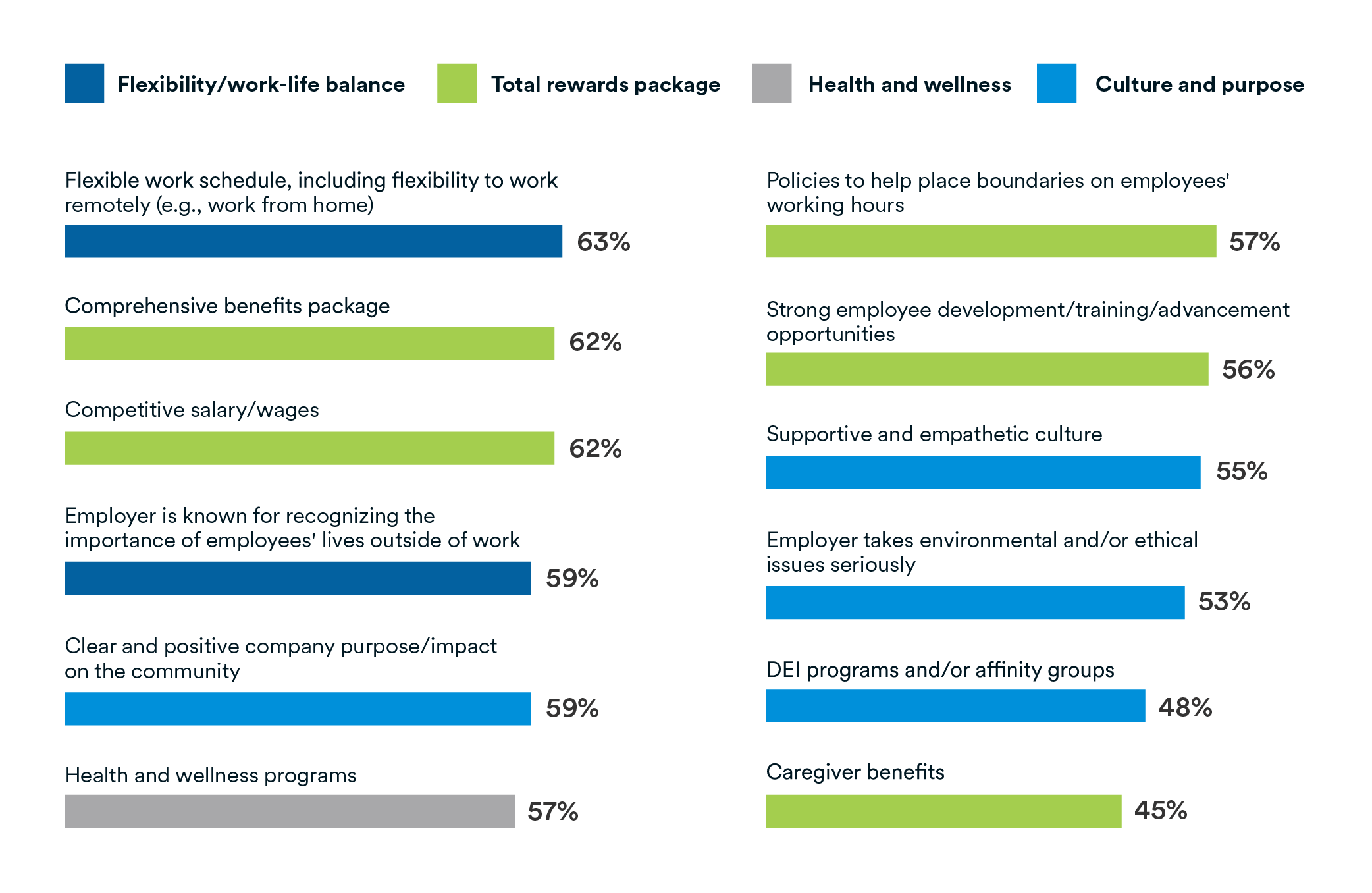The transformation of international work and the globally-mobile employee
The shift to remote work, prompted by the pandemic, accelerated the adoption and utilization of technology that makes work-from-anywhere models possible. As a result, employers and employees alike are rethinking their approach to globally-mobile work. As remote work becomes more feasible, there is a growing interest in working abroad, especially among the younger workforce.
Read the full report.
Interest in assuming a work assignment in a foreign country has increased over the last two years. Currently, half of the workforce expresses an interest in working abroad - and this number is expected to continue to increase.
of total employees (2020)
of total employees (2022)
of total employees (Projection by 2025)
Globally-mobile employees are increasingly concerned about their holistic health.
Despite this increased interest in working abroad, globally-mobile assignments can be stressful and isolating experiences for employees. This increased engagement in globally-mobile roles comes at a critical point in workforce development among employee populations shaken by the pandemic, where concerns around holistic health are heightened.
Discover the top trends and insights from the report.
Heightened feelings about holistic health are influencing globally-mobile employees’ expectations of their employers.
At the same time, many employers underestimate these unique pressures and anxieties faced by this employee group, which ultimately may impact how an employee considers staying in a globally-mobile role or pursues international work.
There is a stark disconnect between employers and their employees.
Almost half of globally-mobile employees report having negative mental health; more than half of globally mobile employees report feelings of stress and burnout while on assignment. Employers estimate these numbers to be much lower.
Strong expat benefits play a critical role in shaping the employee experience.
This concern about all aspects of their holistic health and well-being is shaping globally-mobile employees’ expectations for support from their employers. Globally-mobile employees are turning to their organizations for a wider range of non-medical benefits, comprehensive benefits communication and education, extra workplace flexibility and greater diversity, equity and inclusion (DEI) initiatives.
Top “must-have” elements among younger employees when considering whether to accept a global role or remain in a global role.
Learn more about the four key areas of interest among GMEs.
To drive utilization and appreciation of these workplace experiences and benefits, effective benefits communication and education can help employers optimize their expat offering. Along with a wider range of benefits that suit their needs, 65% of current assignees are looking for more relevant communication from their employers.
How can employers engage and support a globally-mobile workforce?
The needs of their globally-mobile workforce put employers in a unique position to differentiate themselves from competing organizations and attract and retain top-tier talent.
Strategic additions tailored to address the needs of globally mobile employees can strengthen the employer-employee relationship.
of globally-mobile employees are satisfied with their current job.
of globally-mobile employees intend to still be working for the organization in 12 months.
Turning insights into action.
In the months and years ahead, employers have a significant opportunity to re-imagine the globally-mobile work experience. As the pandemic eases, the impact it had on the transformation of international work and the global landscape will remain and only continue to become more complex. Employers must understand employee needs and adapt new global working models to become employers of choice among the globally-mobile workforce of the future.
View past reports

